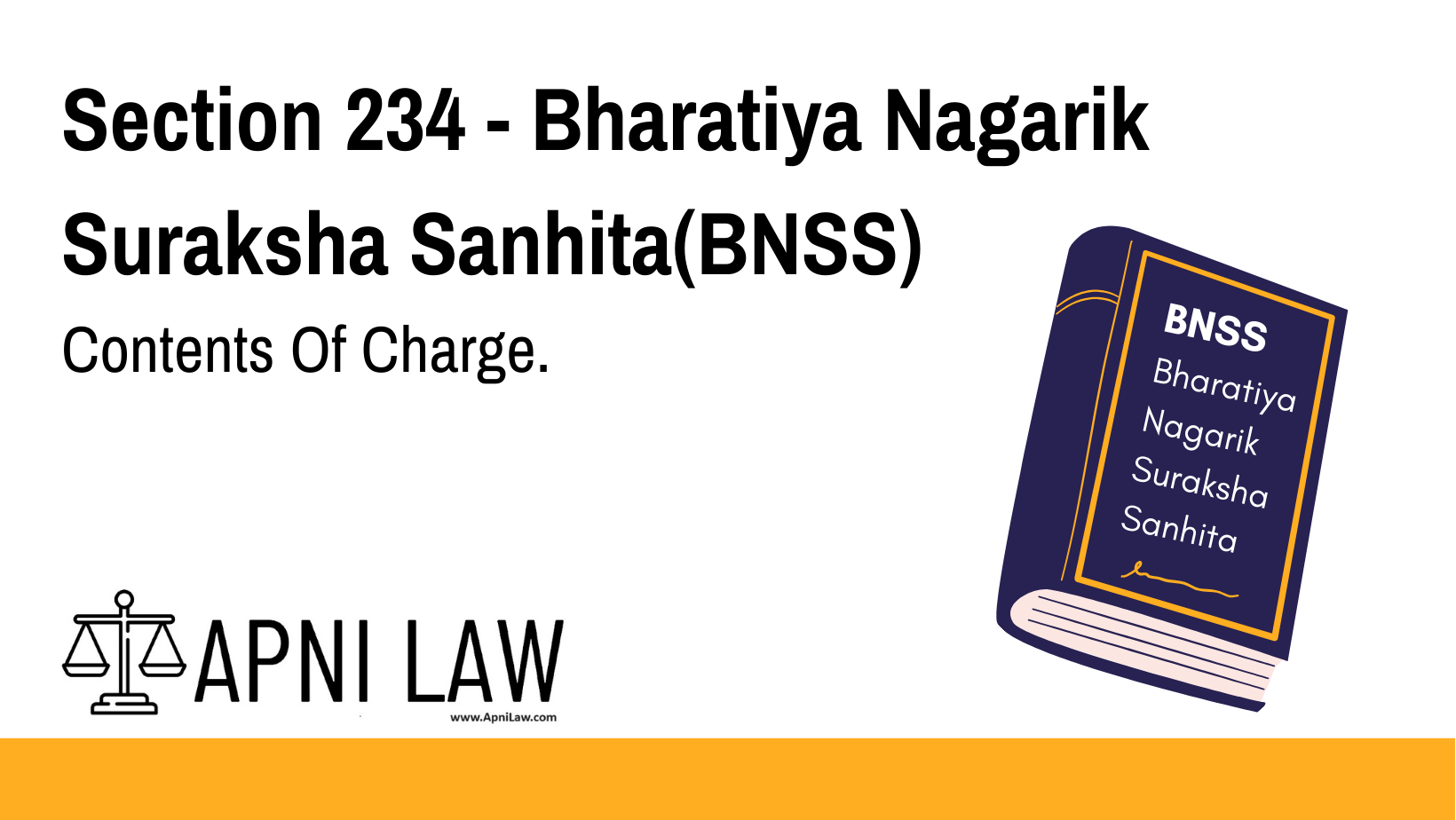Bharatiya Nagarik Suraksha Sanhita (BNSS) – Section 234
This section of the BNSS deals with the **form and content of charges** in criminal proceedings. It outlines the essential elements that must be included in a charge to ensure fairness and transparency for the accused.
Key Provisions:
- Section 234(1): The charge must clearly state the specific offence with which the accused is charged.
- Section 234(2): If the law defining the offence has a specific name, the charge can use that name alone.
- Section 234(3): If the law doesn’t provide a specific name, the charge must include enough of the offence’s definition to inform the accused of the allegations against them.
- Section 234(4): The charge must mention the relevant law and section under which the offence is alleged to have been committed.
- Section 234(5): The charge is considered a statement that all legal conditions required for the offence are present in the specific case.
- Section 234(6): The charge must be written in the language of the court.
- Section 234(7): If the accused has prior convictions that could affect the punishment, the fact, date, and place of those convictions must be stated in the charge.
Illustrations:
- Illustration (a): Charging someone with murder automatically implies that their actions fall under the definition of murder in the BNSS, and that they don’t qualify for any exceptions.
- Illustration (b): Charging someone under Section 116 for causing grievous hurt means the specific elements of that section are considered to be met, and no exceptions apply.
- Illustration (c): A charge can simply state the offence (e.g., murder, theft) without going into detailed definitions, but the relevant sections under which the offence is punishable must be mentioned.
- Illustration (d): The charge must clearly articulate the specific act of obstruction that is alleged.
Common Questions and Answers:
- Q: Can a charge be amended?
A: Yes, the court can amend the charge at any time before sentence is passed. This is important to ensure accuracy and address any discrepancies in the original charge.
- Q: What if the charge doesn’t include all the necessary details?
A: A charge lacking essential details might be deemed insufficient and could potentially affect the validity of the proceedings. This is why it’s crucial for prosecutors to draft charges with care and accuracy.
- Q: How does this section ensure fairness for the accused?
A: By requiring specific and clear charges, Section 234 helps the accused understand the allegations against them and prepare their defense effectively. This contributes to a fair and just legal process.










